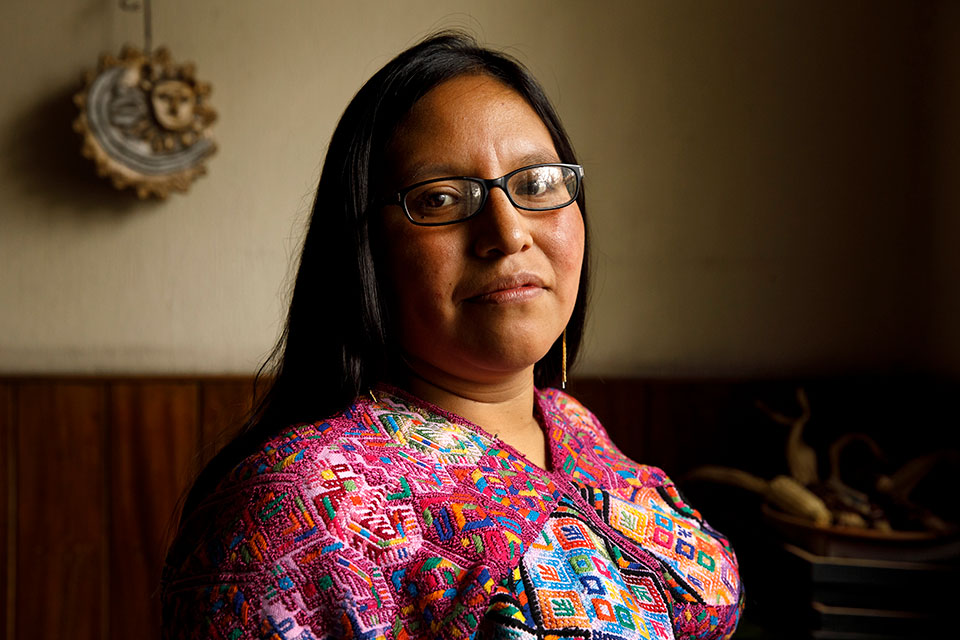From where I stand: “Just the act of wearing our traditional clothes is an expression of resistance”
Sonia Maribel Sontay Herrera is an indigenous woman and human rights defender from Guatemala. Her vision is for Guatemala to respect the rights of indigenous women and hear their voices.Date:

I am a human rights defender and an indigenous woman. My father wanted me to be a professional and brought me to the city to study when I was 10 years old. I was given an opportunity that most indigenous girls don’t get… but it was a cultural shock.
My teachers only spoke Spanish and I only spoke K'iche'. Language is a big barrier from accessing services still—health care, education, and other public services. It shouldn’t be that the indigenous women have to learn how to speak the language of the State. It’s the State that should provide services in their language.
For me, personally, racism has been the hardest challenge. People look at us differently, they treat [indigenous women] differently. When I finished my studies and started looking for professional work, some people said, ‘I do have work for you, but at home’. They see us as domestic workers; when they see an indigenous woman, they assume that’s all we can do.
Just the act of wearing our traditional clothes is an expression of resistance.
Racism is also hindering indigenous women’s political participation. Women’s political participation doesn’t mean putting two women in a development council, when they cannot negotiate or make decisions.
Majawil empowers indigenous women so that they can fight for spaces in the community level and speak up. We train women in leadership and encourage their economic empowerment. If women don’t have the money to afford transportation, how will they participate in meetings?
Land rights is another profound issue for the indigenous communities. The defender of our land is the defender of life, because for us, land is life. What happens in one territory affects the others. For example, mining companies come and excavate and then leave. Then comes the earthquakes, burying the communities. The natural water sources are now drying up and new sicknesses have come to our communities. Our children can no longer swim and play in the rivers. They get skin diseases and the doctor asks us, what did they do to get this disease?
I was recently asked by someone, do you think that the situation of indigenous women will change? I said, yes, because otherwise my struggle would have no result.”
Sonia Maribel Sontay Herrera is the Organizational and Advocacy Coordinator of Majawil Q’ij Association, which works to empower indigenous women in local communities of Guatemala. A long-standing partner of UN Women, representatives from Majawil participated in civil society dialogues on UN Security Council resolution 1325, to discuss the diverse and pressing challenges faced by indigenous women of Guatemala.